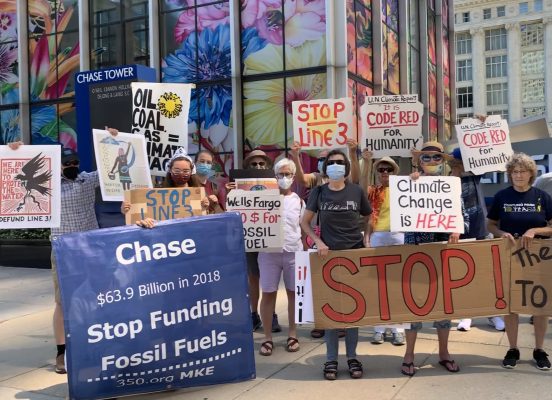Supporting the Divest-Invest movement has been one of Wallace Global Fund’s core climate strategies. It is a prime example of our mission to support progressive, people-powered movements that aim to catalyze transformative change. In 2009, as US and international action on climate change foundered, college students decided a new approach was needed to build political will for climate justice. They knew that the primary barrier to climate action is the fossil fuel industry, which is disproportionately responsible for the climate crisis and which has poured tens of millions into climate change denial and lobbying against action.
Campus activists began calling for their universities to divest their vast endowments from fossil fuel companies, naming it as an ethical obligation. Divestment by major community institutions such as universities would strip fossil fuel companies of their social license to operate, making their involvement in the political process unacceptable. The students hoped to break the grip of the fossil fuel industry on the political process. We were host to early meetings of students and activists that planned many of the first campus campaigns. But the nascent calls for divestment were given historic lift when noted author and 350.org founder Bill McKibben penned a game-changing call to action and launched a nationwide tour to mobilize a new movement. It was bolstered by the analysis of the Carbon Tracker Initiative, which proved that fossil fuel companies posed huge risks to investors because their value was propped up by “stranded assets,” infrastructure and fuel reserves that could not possibly be used if the world was going to survive climate change.
The Divest-Invest movement spread quickly and has now expanded to include cities, pension funds, health care institutions and religious institutions across the globe. Related campaigns have sprung up targeting a range of financial sector institutions, including banks, asset managers, and insurers. More than 1,500 have now made commitments to restrict fossil fuel funding. It is now widely understood that it is the fiduciary duty of asset managers to take climate risks into account. After more than a decade of action, these and other actors have collectively pledged to divest almost $40 trillion in assets under management.
Divestment also proved to be an important movement building tool and training ground for many of the world’s leading climate campaigners. Students involved in the early campaigns have gone on to lead other climate activism efforts, including leading 2019’s climate strikes and the movement for a Green New Deal.
Nobel Prize winner Archbishop Desmond Tutu, who was a key figure in the anti-Apartheid movement in South Africa and a leading spokesman for Divest-Invest, opened up a press conference at the 2014 UN Climate Summit with these remarks about the movement:
“Climate change has become the human rights challenge of our time,” he said. “I commend the individuals and institutions who are announcing divestment of their assets from fossil fuels and are investing instead in the clean energy needed for human survival.”
